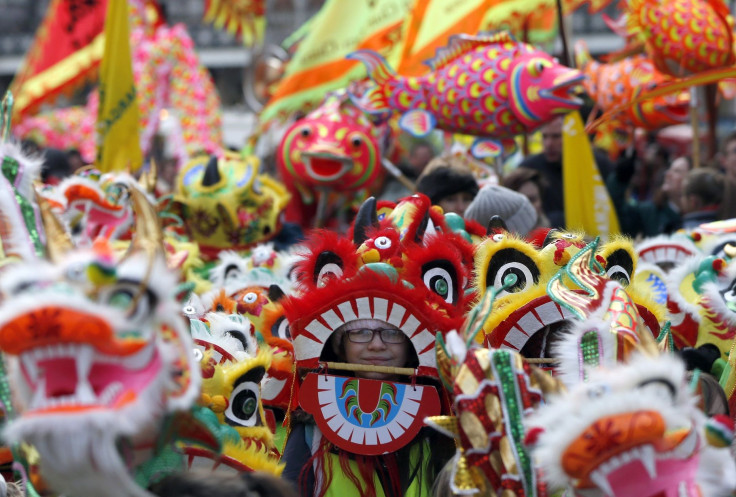Chinese New Year 2017: Ways to avoid bad luck

Chinese New Year 2017, the year of the Fire Rooster, which starts from Jan. 28, comes with its own set of traditions to ensure a healthy as well as prosperous year ahead. However, there are also some superstitions associated with the spring festival. According to Chinese traditions, there are certain things that people must not do to avoid a year of bad luck.
Here are some New Year taboos that will apparently help avoid bad luck in 2017.
Things to avoid on Chinese New Year Day 2017 (Jan. 28)
Taking medicine
According to Chinese superstition, if a person takes medicine on the first day of the New Year (even if it is herbal), he or she is believed to fall ill or suffer from health-related problems for the whole year.
Some people even break their medicine pots after the bell rings announcing the New Year. This is believed to drive the illness away.
Waking people by saying their name
People shall not wake others by their name or encourage them to do things as, according to Chinese customs, this will follow the whole year and they will have to urge them to do things.
Waking people by saying ‘Happy New Year’
Do not wish people "Happy New Year" while they are asleep or still in bed as they will remain bedridden for the whole year, according to Chinese customs.
Sweeping garbage
While cleanliness is considered important during any festival, according to Chinese traditions, sweeping garbage on New Year’s Day is considered unlucky. Sweeping of garbage is associated with sweeping the wealth away.
Eating meat or porridge during breakfast
It is believed that only poor people eat porridge during breakfast. Hence, to avoid making a poor start of the year, people are advised not to eat porridge during breakfast on the particular day. Meat is also avoided on New Year’s Day as part of showing respect to the Buddhist gods. Instead, cooking rice is believed to invite wealth to the family.
Borrowing or lending money
Borrowing money is avoided on the first day as it is believed that if a people start a year taking loans, they would probably need them all through the year. Furthermore, one should also not lend money as they would be lending money all year round.
Washing clothes and hair
Not only one must avoid washing clothes on New Year's Day but also on the second day of the Chinese New Year. The third day of New Year is celebrated as the birthday of Shuishen, the water god. Hence, washing of clothes is avoided until then.
Furthermore, washing hair on the first day of the Chinese lunar calendar is also associated with bringing bad luck. It is believed that washing of hair also washes away the good luck.
Allowing others to take from your pocket
Do not ask people to take anything from your pocket. Instead, give it to them on your own. Allowing others to take something from your pocket is considered allowing them to take away your good luck.
Using needle, knives and scissors
Using needles, knives, scissors and other sharp objects is discouraged as it is believed to cut off fortune. According to a Chinese saying, “If you use a knife or scissors on the first day, quarrels or disputes are inevitable.” Hence, kitchen work and sewing shall be avoided.
Visiting parents if married and female
Married women can meet their parents but not at their home. If a married daughter visits the home of her parents, it is believed to bring bad luck as well as economic hardships to the family. According to The Epoch Times, Married women can visit their parents on the second day of the Chinese New Year, which is referred to as “Ying Xu Ri,” which means the day to welcome sons-in-law.





















